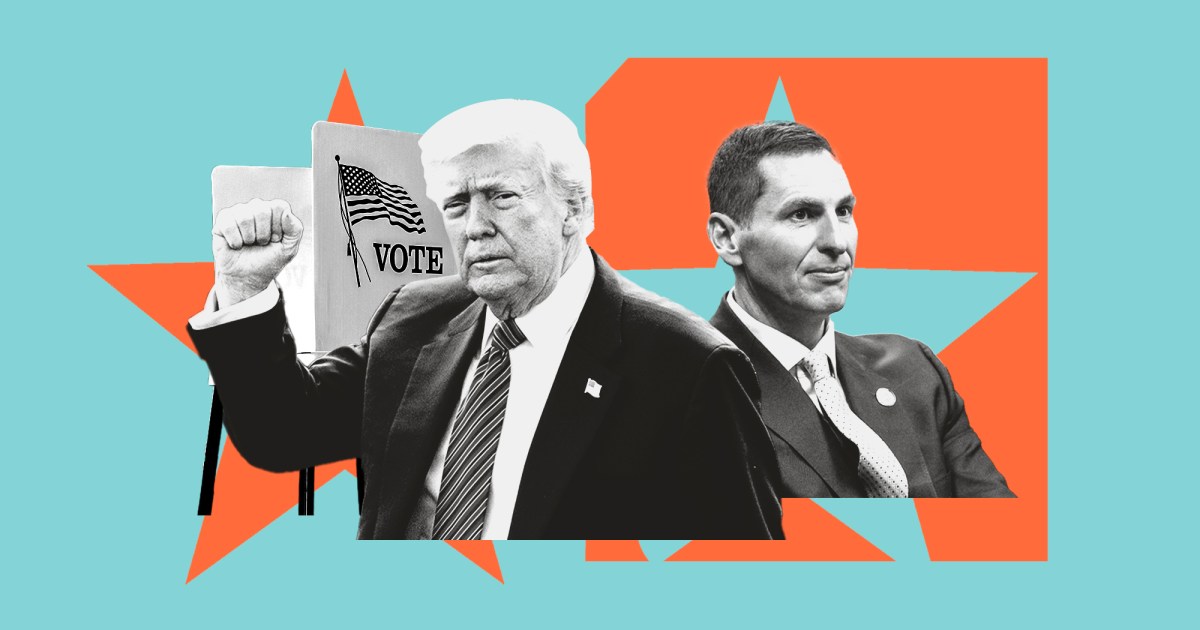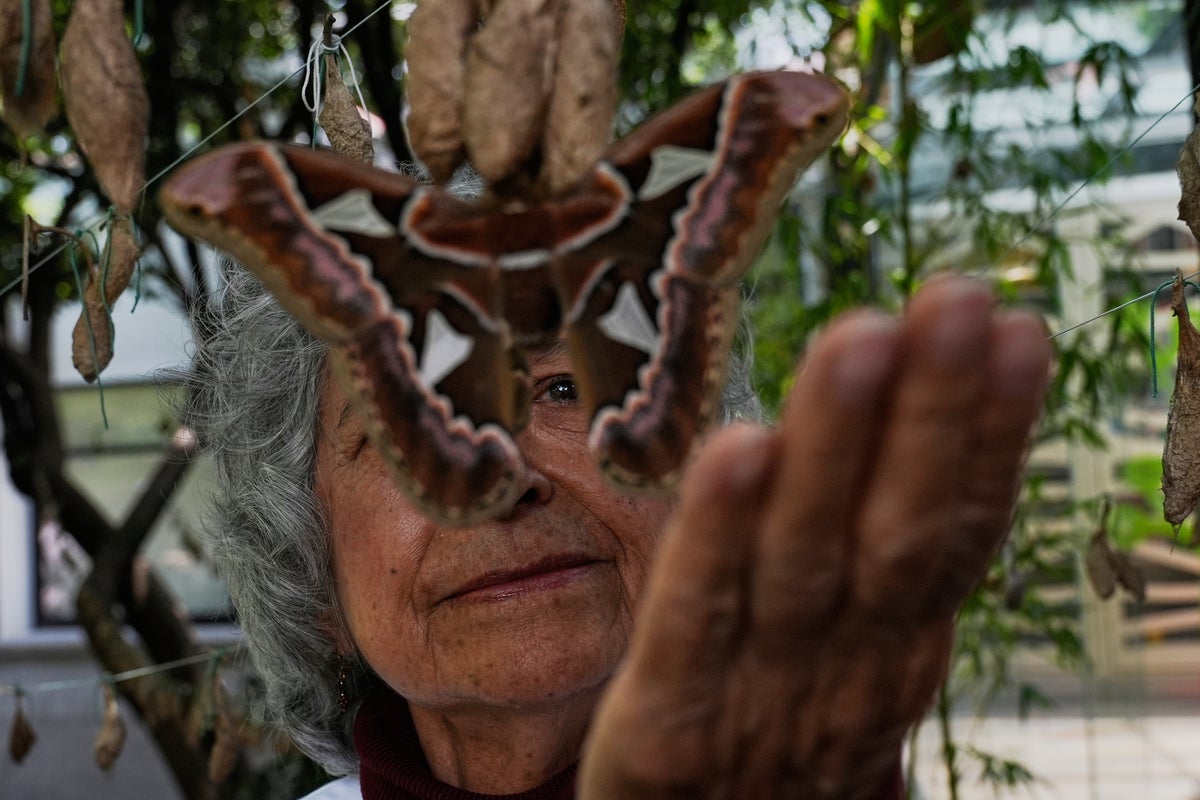Donald Trump has made false claims about voter fraud central to his political identity and issued a sweeping anti-voting executive order in March. Now he’s weaponizing the Justice Department to advance his voter suppression agenda.
On Tuesday, in its first major voting-related lawsuit, the Trump Justice Department sued the state of North Carolina over its voter rolls, reviving arguments that Republican judicial candidate Jefferson Griffin used to try to throw out tens of thousands of ballots in an effort to overturn the victory of Democratic North Carolina Supreme Court Justice Allison Riggs.
“It’s no accident they’ve chosen a case in which the Republican candidate lost and they’re echoing his exact claims,” says Chiraag Bains, who served as deputy director of the White House Domestic Policy Council under Joe Biden and as a senior counsel in the Justice Department’s Civil Rights Division from 2010 to 2017.
The Justice Department claims that North Carolina violated the Help America Vote Act of 2002 by failing to collect voters’ driver’s license or Social Security numbers when they registered. Griffin challenged the eligibility of more than 60,000 voters who he claimed fell into that category, even though all of those voters showed identification when they cast a ballot and his legal team never presented a single instance of a someone voting improperly.
Nonetheless, the Trump Justice Department has now resurrected Griffin’s allegations, less than a month after a federal court shut down the GOP plot to steal the supreme court election and ordered the state board of elections to certify Riggs’ victory.
The DOJ lawsuit claims that the elections board “only took limited actions to prevent future violations from reoccurring” and should create a plan, within 30 days of a court order, “to remedy the demonstrated violations.”
That has led to fears among voting rights advocates that the elections board, which is now under Republican control after the GOP-controlled legislature stripped the state’s Democratic governor of the power to appoint a majority of members, will erroneously remove eligible voters from the rolls if they do not provide the information demanded by DOJ.
“There’s a risk of widespread disenfranchisement depending on what steps the Republican majority on the board of elections seeks to take,” Bains says.
“We are concerned that this indicates that the Trump administration is interfering in North Carolina’s process of managing its voter rolls,” adds Ann Webb, policy director for Common Cause North Carolina.
The North Carolina lawsuit is likely just the beginning of the Trump DOJ’s efforts to make it harder to vote. “I expect we’ll see all of the section’s energy go into cases intending to remove voters from the rolls and tighten access to voter registration and voting,” Bains predicts.
“It’s no accident they’ve chosen a case in which the Republican candidate lost and they’re echoing his exact claims.”
Trump has radically transformed the Justice Department’s Civil Rights Division, which oversees the voting section and has historically been known as its “crown jewel.”
He appointed Harmeet Dhillon, a Trump ally with a long history of attacking voting rights, as head of the division. She has subsequently dismantled the division’s staff and completely changed its priorities from past administrations.
More than 250 lawyers, 70 percent of its total, have left the civil rights division during Trump’s second term, and the department’s voting section, which enforces the Voting Rights Act and other voting rights laws, has shrunk from 30 lawyers to just three. As the Guardian reported, political appointees removed all the senior managers in the voting section and ordered them to dismiss every major active case, including litigation challenging restrictive voting laws and gerrymandered maps in states such as Arizona, Georgia, and Texas.
At the time same, Dhillon removed the longtime mandate of stopping racial discrimination in voting from the section’s mission statement and instead pledged to address Trump-inspired priorities that include enforcing the president’s executive order and “preventing illegal voting, fraud, and other forms of malfeasance and error.”
“Fighting racial discrimination doesn’t exist anymore—that is the founding rationale for the Civil Rights Division and the voting section,” says Bains. “That is very radical.”
That shift is a major departure from even Trump’s first term, when the department pulled back from voting rights enforcement but largely left the structure of the civil rights division and voting section intact.
However, prominent election deniers urged Trump to gut the division in his second term. Cleta Mitchell, a Republican lawyer who helped lead Trump’s effort to overturn the 2020 election in Georgia, called on the president to fire every lawyer in the voting section, labeling them “leftwing activists.” It appears Trump and his acolytes are largely following those orders.
The civil rights division has played an integral role in protecting voting rights and enforcing the Voting Rights Act over decades. Now, under Trump, it’s become a chief impediment to protecting voting rights.
“Trump is waging an overarching war on the idea that the federal government should be in the business of preventing historic and present-day race discrimination,” says Bains. And the Justice Department is now at the front lines of that battle.















